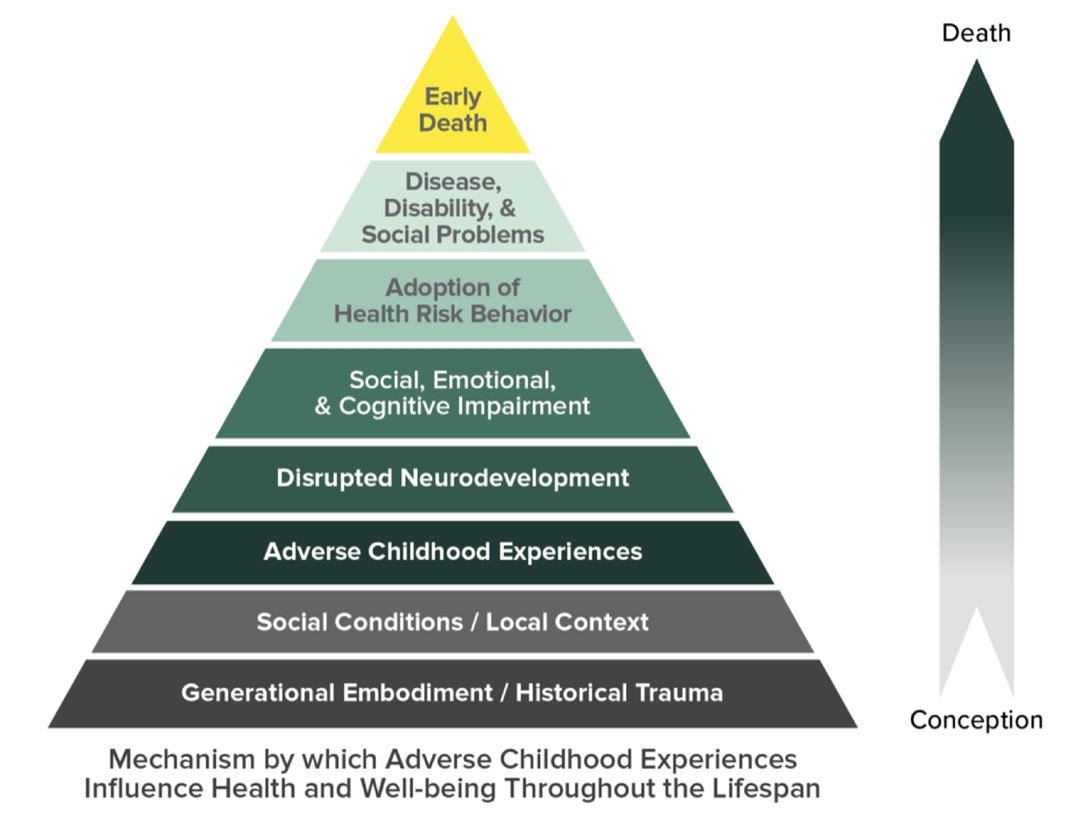Adverse Childhood Experience (ACEs)

Understanding ACEs and Their Impact on Oklahoma: The Crucial Role of Trauma-Informed Correctional Support
Introducing ACEs
Adverse Childhood Experiences, or ACEs, have a profound impact on the lives of individuals, families, and communities. In the United States, Oklahoma ranks 41st in the nation when it comes to ACEs. That is, 40 states have fewer children per capita experiencing these traumatic events. This startling statistic sheds light on a pressing issue that affects countless Oklahomans, leading to a cycle of challenges, including a high rate of incarceration. The Resilience Prison Project (RPP) recognizes
the significance of addressing ACEs and offers Trauma-Informed, Supportive, and Practitioner courses as a means of breaking this cycle. In what follows, we will delve into what ACEs are, their relevance in Oklahoma, and the importance of the work being done within correctional environments.
“Nine times out of ten, the story behind the misbehavior won’t make you angry, it will break your heart.”
~ Annette Breaux
Understanding ACEs
ACEs are traumatic events or adverse circumstances that occur during a person’s childhood. These experiences can include physical or emotional abuse, neglect, household dysfunction, substance abuse, or witnessing violence. The ACEs Study, conducted by the Centers for Disease Control and Prevention (CDC) and Kaiser Permanente, shows a strong correlation between ACEs and various negative health and social outcomes in adulthood, such as chronic diseases, mental health issues, and involvement in the criminal justice system.


Relevance for Oklahomans
Oklahoma’s ranking of 41st in the nation for ACEs indicates that a significant portion of the state’s population has experienced trauma during their formative years. This not only directly impacts individual well-being but also contributes to broader social issues. This includes high rates of incarceration. The link between ACEs and criminal behavior is well-documented. Individuals who have experienced ACEs are at a higher risk of engaging in criminal activities. Addressing ACEs in Oklahoma is not just a matter of improving individual lives. It is also a vital step in breaking the cycle of crime and incarceration.
Importance of Trauma-Informed Support in Correctional Environments
The RPP recognizes that the state’s high incarceration rates are closely tied to the prevalence of ACEs. To break this cycle and create healthier, more resilient communities, the organization offers Trauma-Informed, Supportive, and Practitioner courses inside ODOC. These courses provide adults in custody with knowledge, insight, and strategies to build resilience, heal from trauma, and make positive life choices. Here are a few key reasons why this work is of paramount importance:
1. Rehabilitation and Reintegration
Trauma-informed support is essential to help incarcerated individuals address the root causes of their behavior. By providing them with the tools to heal from their childhood trauma, the RPP enables them to work towards rehabilitation and successful reintegration into society.
Reduction in Recidivism
Understanding and addressing ACEs leads to a significant reduction in recidivism rates. When individuals have the opportunity to confront their trauma and develop coping strategies, they are less likely to return to prison.
Community Well-being
A focus on trauma-informed care not only benefits the adults in custody. It also contributes to the overall well-being of Oklahoma’s communities. By breaking the cycle of ACEs and incarceration, we create peaceful, thriving and more resilient neighborhoods.
“Trauma comes back as a reaction, not a memory,” by Bessel Van Der Kolk.
Paving the Way Toward a Brighter Future
Adverse Childhood Experiences are a critical issue in Oklahoma. There are significant implications for the state’s high incarceration rates. The work being done by the Resilience Prison Project in providing Trauma-Informed, Supportive, and Practitioner courses within correctional environments is a crucial step in addressing this problem. By empowering individuals to heal from their past trauma and make positive life choices, we can pave the way for a brighter future for both the adults in custody and the communities they will eventually return to.


